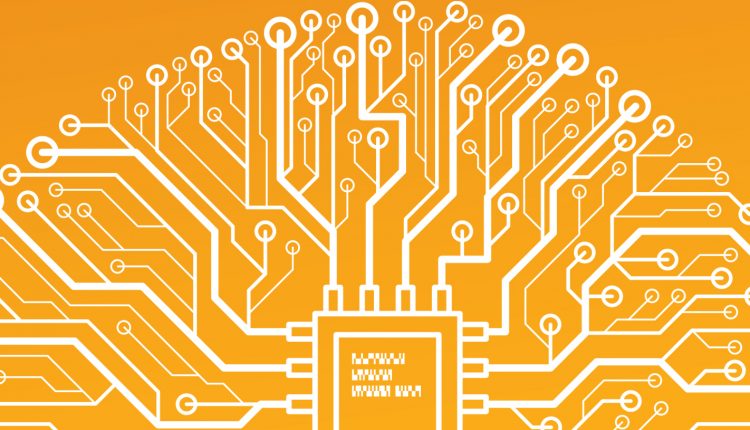11.15.2019
The 105th Scientific Assembly and Annual Meeting of the Radiological Society of North America (RSNA) is just around the corner, promising attendees hands-on experience with cutting-edge technology, including artificial intelligence (AI), 3D printing and virtual reality. Offering more than 2,500 scientific presentations and posters, more than 1,900 education exhibits and 440 educational courses, the RSNA scientific assembly is the premier annual radiology forum in the world. Enhancements planned for future meetings promise to keep the forum in step with the evolving healthcare landscape and the changing needs of attendees.
Highlights of the upcoming meeting, which takes place December 1 – 6 at McCormick Place in Chicago, include an outstanding scientific program and a technical exhibit floor covering nearly 450,000 square feet.
Plenary sessions will feature influential leaders, physicians and researchers speaking on topics important to physicians and their patients. On Sunday, RSNA President Valerie P. Jackson, M.D., will share her thoughts on the importance of patient-centered care in her President’s Address, “A Matter of Perspective: Putting a New Lens on Our Patient Interactions.” Also on Sunday, Abraham Verghese, M.D., will present “Finding the Caring in Care” at the Opening Session.
On Monday as part of the New Horizons Lectures, Andrew J. Saykin, Psy.D., ABCN, will deliver his lecture, “The War on Alzheimer’s Disease: Neuroimaging, Biomarkers and Genetics on the Front Lines,” and Robert M. Pascuzzi, M.D., will speak on “Charcot, The Iron Horse, and Creeping Paralysis: Good Science in the Treatment of ALS.”
Special Interest, Controversies and Hot Topics sessions presented at various times during the week highlight timely, important topics in radiology, including diagnosis of vaping-associated lung injury, the role of neuroimaging in the diagnosis and treatment of depression, and radiology’s role in responding to disaster and mass casualty incidents.
Presenters from India and Egypt will deliver the Country Presents series, celebrating their countries’ unique contributions to radiology.
In the popular Fast 5 Session—now on Tuesday afternoon—five speakers have just five minutes each to share their most creative ideas.
The vast technical exhibition, featuring more than 700 exhibitors, offers the latest technological advances in an array of subspecialties. The AI Showcase and Theater—in an expanded location—and the 3D Printing and Advanced Visualization Showcase and Theater show how these new technologies and applications can be incorporated into clinical practice.
New this year are the Innovation Theater, where attendees can be the first to hear about leading edge technology and product launches, and the Radiation Safety Zone, featuring products designed to protect radiologists and patients.
The Discovery Theater in Lakeside Center provides a restful environment for informative presentations and live entertainment, and the new Wellness Lounge offers yoga and a quiet space to reflect and refresh.
For those who cannot make it to the meeting or want to supplement their onsite experience, RSNA continues to expand the Virtual Meeting. With more than 400 courses available, RSNA Virtual Meeting attendees can access more content than ever through April 2020.
The meeting’s theme is “Seeing Possibilities Together,” and the RSNA Board of Directors has taken that theme to heart, already looking toward the future and envisioning possibilities to reimagine and enhance the annual meeting for attendees in the coming years.
Keeping pace with the rapidly progressing field of radiology and adapting to the changing needs of our members and meeting attendees are important goals for RSNA. As part of the Society’s ongoing effort to deliver a valuable, high-quality annual meeting experience, RSNA will be evaluating, evolving and enhancing various aspects of the RSNA Scientific Assembly and Annual Meeting.
RSNA is developing plans to deliver several experience-enhancing changes over the next two years. This effort will include enhancements across all aspects of the meeting—both onsite and virtual, including technical exhibits, educational and scientific programming, and meeting-related technology. Some improvements will be implemented as early as 2020, while more complex initiatives, requiring longer planning, will be introduced at RSNA 2021.
An important schedule improvement identified through attendee feedback and meeting data is the discontinuation of educational programming on Friday. Therefore, beginning in 2021, the Annual Meeting will conclude at end of day Thursday. Based on feedback from exhibitors, the technical exhibition will change from five days to four days in 2021.
With a record 13,419 abstract submissions for RSNA 2019, the annual meeting planning committees are dedicated to ensuring that the new schedule will continue to deliver a high-quality annual meeting experience, filled with innovation, stimulating education programs, the field’s top science and the latest technological advances in a format that reflects the fast-paced lifestyle of busy RSNA meeting attendees.
The RSNA Board of Directors is committed to presenting the best forum for exploring cutting-edge technology, learning about the latest discoveries, and connecting with radiology thought leaders and colleagues near and far. The board is excited about changes underway and looks forward to sharing more as enhancements progress.
RSNA.org



Comments are closed.